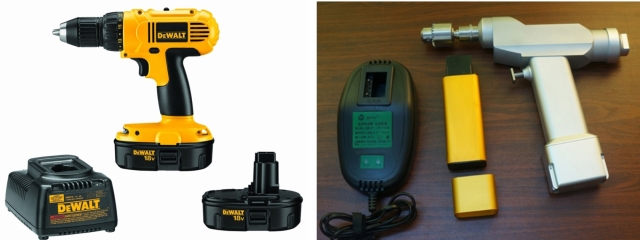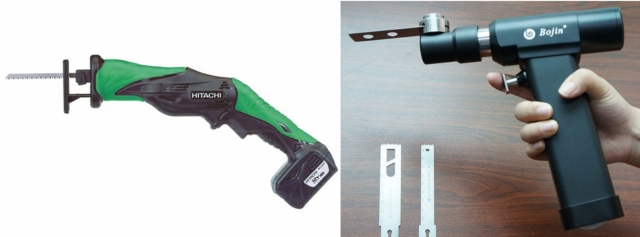
Image Credit: National Library of Medicine
Two hundred years ago, a ship’s carpenter had many duties. In addition to repairing the ship, a carpenter would be called on to perform emergency amputations. Why? He was the one who had the saws.
Modern surgeons still require saws, as well as drills, chisels, scrapers, and grinders. As a lighthearted exercise that has almost nothing to do with green building, I recently got the idea to compare surgical tools with carpentry tools.
Full disclosure: This blog is for fun. It is completely empty of any building science.
Comparing prices
I assumed that surgeons are paying five times as much as carpenters for their tools. In some cases, that’s true. But the price picture turned out to be a little more complicated than I assumed.
Before I could make any conclusions about tool prices, I had to do some research. I discovered that American and European manufacturers of surgical tools are reluctant to publish their prices on the web, making this research difficult.
However, Chinese manufacturers came to the rescue. Unlike their American and European counterparts, Chinese manufacturers seem eager to post prices.
What did I learn? The “WalMart effect” applies to some, but not all, surgical tools. Many Chinese manufacturers offer great prices on surgical tools.


Weekly Newsletter
Get building science and energy efficiency advice, plus special offers, in your inbox.

This article is only available to GBA Prime Members
Sign up for a free trial and get instant access to this article as well as GBA’s complete library of premium articles and construction details.
Start Free TrialAlready a member? Log in











10 Comments
Tool ads
Great, now my screen is littered with medical device advertisements. Otherwise very interesting.
Owwww!
I was OK until the circumcision clamp.
Dentistry too
Years ago, a surgeon drew my attention to the similarities between carpentry tools and the ones he was using to put pins in my broken finger - probably to distract my attention. But the seeds were sown in my mind, and recently when a dentist extracted a polar with nothing more sophisticated than a pair of pliers I formed a plan. Locals (and of course paid GBA members) may now attend my house anytime after dark for very cheap dentistry.
Response to Malcolm Taylor
Malcolm,
Carpenters can buy the Knipex right-angle pliers on the left for $33.40 on Amazon. The dental tool on the right ("Malik extracting forceps") is an incredible bargain at only $6.30 (with free shipping).
I'll be giving you a call soon to ask what you charge for wisdom teeth.
.
Martin
Hold off a bit. i see the prices veterinarians are able to extort for their work compare favourably with that done on humans. I may end up specializing in domestic animals.
A surgeon's sink is leaking
He calls the plumber, who spends about an hour fixing the sink and cleaning up. He presents his bill for $400.
"$400 an hour? I'm a surgeon and I don't charge that much!"
"Yeah, neither did I. That's why I switched to plumbing."
Wood doesn't bleed
I've worked with several doctors who are hobbyist woodworkers. Some are quite good (http://hallowellwoodworks.com/past-work/). They like to say "the tools and techniques are similar, but wood doesn't bleed."
Response to Michael Maines
Michael,
Whoever said "wood doesn't bleed" never tapped a maple tree on a sunny March day.
-- Martin Holladay
Ha, good point Martin.
I've also heard "wood doesn't sue you when you make a mistake" a few times.
Good enough?
Surgeons have one great advantage that woodworkers (and metalworkers, mechanics, etc.) don't: They can be a little sloppy. I realized this years ago when I watched a video of a friend's knee surgery. The process looked anything but, shall we say, "surgical." I realized that a little bone-cutting/drilling outside the lines didn't really matter -- living animals repair themselves, wonderfully. Dead trees or your car, not so much.
Log in or become a member to post a comment.
Sign up Log in